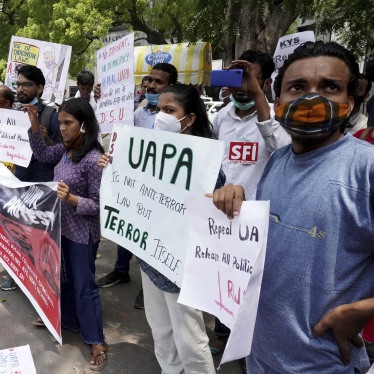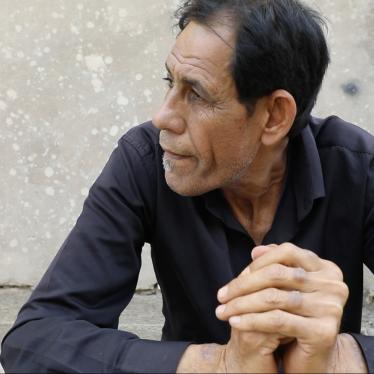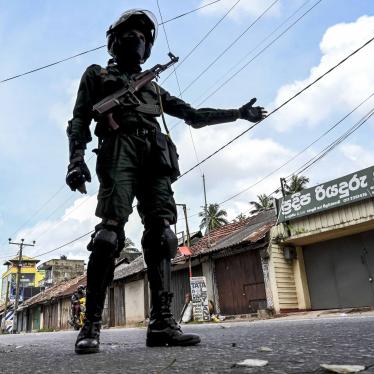(New York) — The United States released three children from detention at Guantanamo Bay today. Human Rights Watch welcomed the release, but cautioned that other children are still being detained at the U.S. naval base in violation of international standards.
“The United States is doing the right thing by returning three former child soldiers home for rehabilitation," said Jo Becker, children’s rights advocacy director for Human Rights Watch. “But other child soldiers are still detained at Guantanamo. They are also entitled to rehabilitation and special protection too, but aren’t getting it."
The three children being released are believed to be between the ages of 13 and 15. They were segregated from the adult detainees at Guantanamo, and provided with classes, recreational opportunities and specially trained staff. They have now been returned to their unspecified home countries, where UNICEF will be assisting in their rehabilitation.
The Department of Defense has confirmed that an unspecified number of other children, aged 16 and 17, are also detained at Guantanamo. In contrast to the three who were released, these children are not segregated from the adult population, and are not receiving education or rehabilitation assistance. International law generally defines children as all individuals under the age of 18.
“The United States is bound by law to provide rehabilitation for any former child soldiers within its jurisdiction," said Becker. “Rehabilitation does not happen in a cell in Guantanamo."
In December 2002, the United States ratified a treaty that establishes 18 as the minimum age for any compulsory recruitment or participation in armed conflict. This treaty—the Optional Protocol to the Convention on the Rights of Children—obliges governments to assist in the demobilization and rehabilitation of former child soldiers, with a particular responsibility to rehabilitate child soldiers within its jurisdiction.
International standards recognize that children under the age of 18 are a particularly vulnerable group, and are entitled to special care and protection because they are still developing physically, mentally and emotionally. These standards include certain key principles, including the use of detention only as a measure of last resort, the separation of children from adults, the right of children to maintain contact with their families, and the right to a prompt determination of their case. In addition, treaties binding on the United States recognize the special situation of children who have been recruited or used in armed conflict, and their rights to prompt demobilization, and rehabilitation and reintegration assistance.
In cases where children are believed to have committed war crimes, they can be formally charged and should be provided with counsel and tried in accordance with international standards of juvenile justice.








